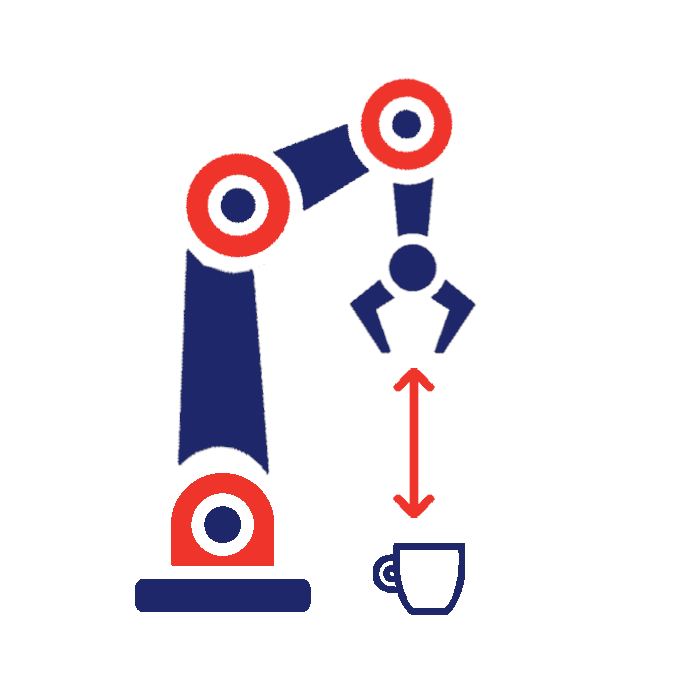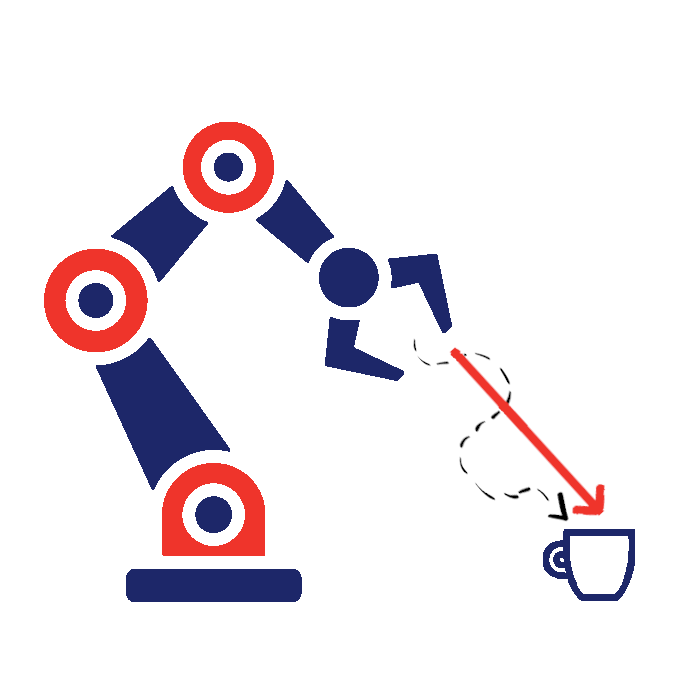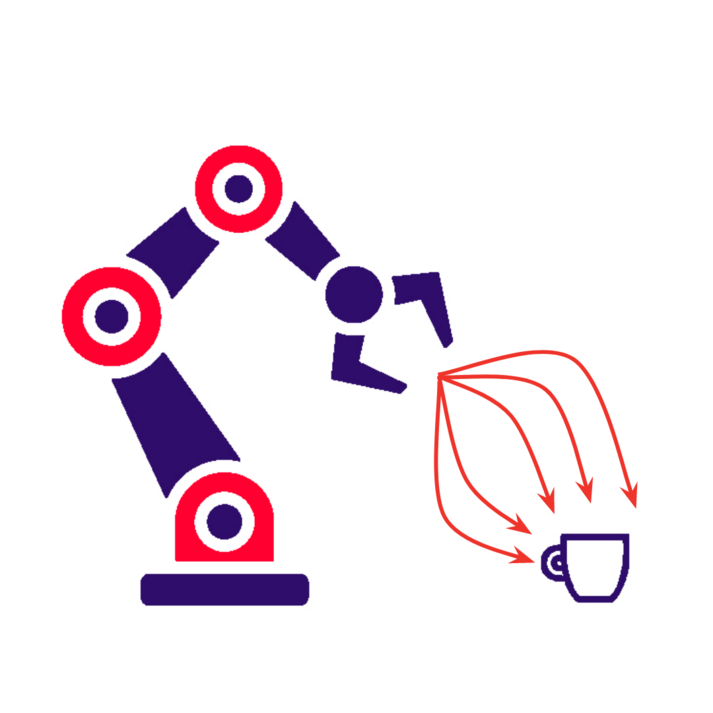About
Motivations


Learning to grasp in robotics is still a partially solved problem. The inherent reward sparsity of this task make it hardly tractable for state-of-the-art reinforcement learning methods. Most of the latest works avoid the exploration problem by constraining the operational space through the use of reward shaping, imitation learning from a few demonstrations, parallel gripper, and top-down movements.

However, the AI breakthroughs of the last decade show that generalization requires large and high-quality datasets.
Quality-Diversity (QD) methods are optimization algorithms that aims to find a set of diverse and high-performing solution to a given problem. Recent works have demonstrate how QD methods can be used to generate datasets – including adversarial objects to grasp (Morrison et al., 2020) and demonstrations to learn locomotion policies in a supervised way (Macé et al. 2023).

The QD-Grasp project aims to leverage the QD capabilities for generating datasets in order to address the hard exploration challenge of learning to grasp in robotics.
References:
Morrison, D., Corke, P., & Leitner, J. (2020). Egad! an evolved grasping analysis dataset for diversity and reproducibility in robotic manipulation. IEEE Robotics and Automation Letters, 5(3), 4368-4375.
Macé, V., Boige, R., Chalumeau, F., Pierrot, T., Richard, G., & Perrin-Gilbert, N. (2023). The Quality-Diversity Transformer: Generating Behavior-Conditioned Trajectories with Decision Transformers. arXiv preprint arXiv:2303.16207.
Authors
By alphabetical order
Faïz Ben Amar, François Hélénon, Hippolythe Watrelot, Johann Huber, Miranda Coninx, Stéphane Doncieux
Sponsors


Pillar Robots • euROBIN • Learn2Grasp